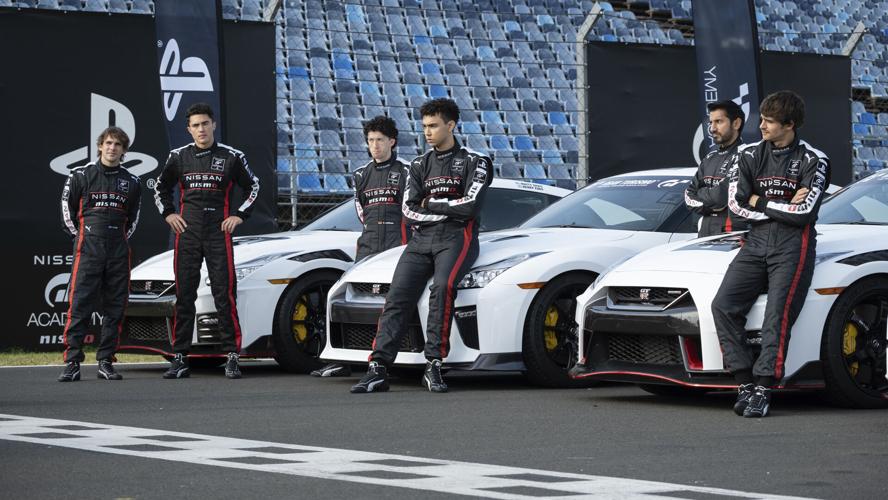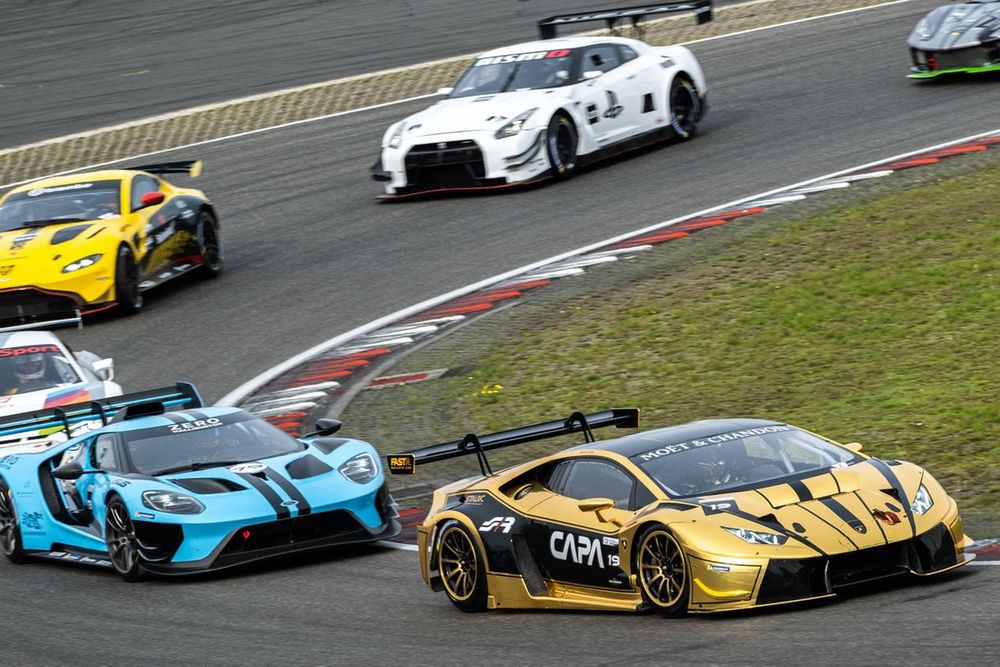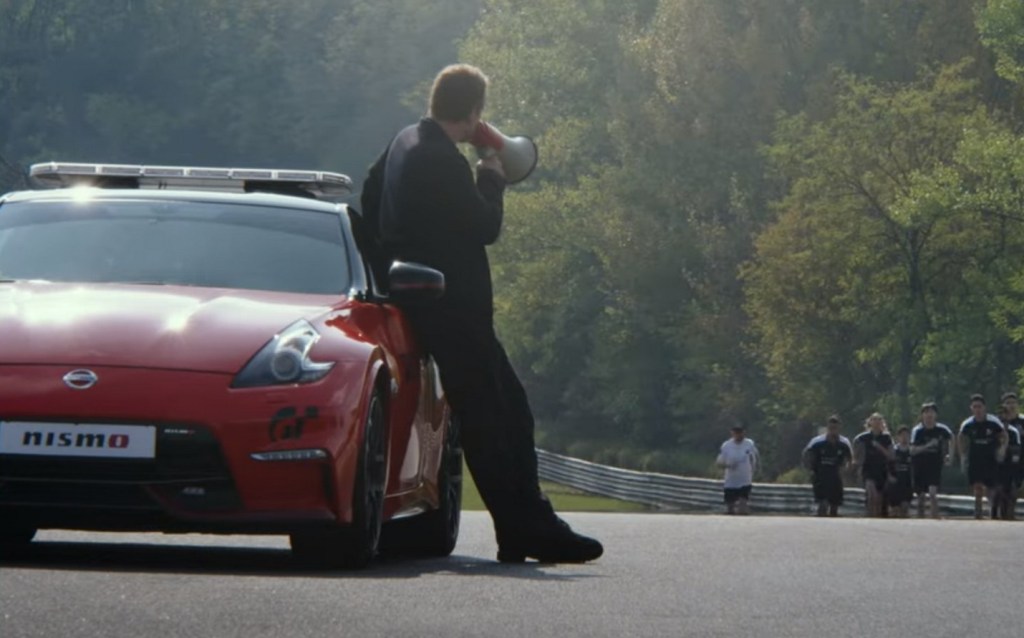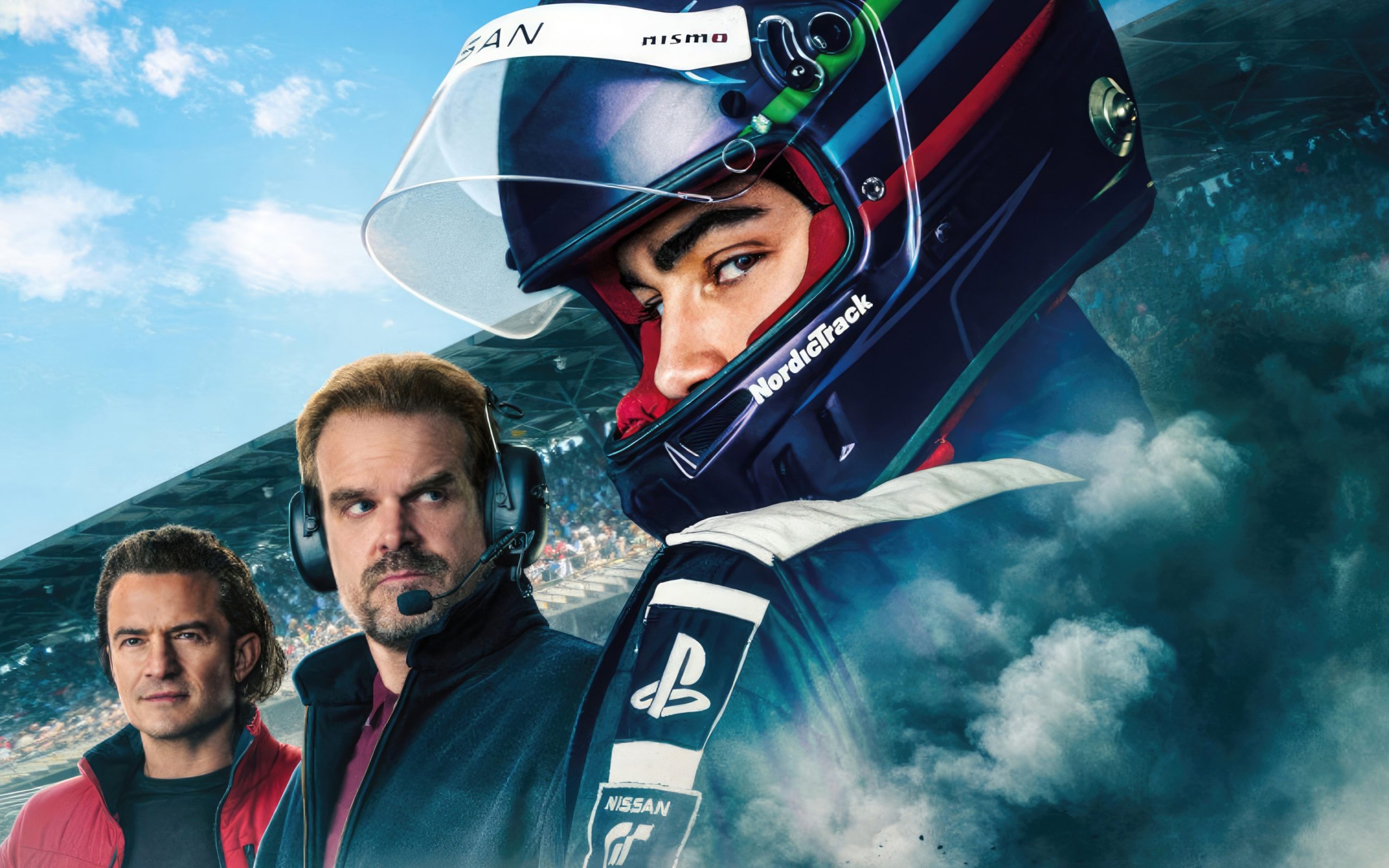PlayStation Productions kicking off their catalogue of video game-inspired live-action movies with an audience-friendly, high-budget Uncharted movie makes a lot of sense, even if critics largely disliked it. PlayStation Productions following up Uncharted with a Gran Turismo movie makes significantly less sense, and that’s before hearing the oddball pitch behind exactly how PlayStation’s highly beloved car sim series was brought to the big screen.
Said pitch is a movie based on a true story, about a real-life Gran Turismo player that eventually became a professional race car driver in the real world, using knowledge and skills he first honed within various Gran Turismo games. If this movie sounds like a two-plus-hour commercial for the PlayStation brand, and specifically its Gran Turismo games, that’s because it basically is. After all, what other interpretation could one reasonably glean from a movie that’s entirely designed to glorify someone achieving their dreams using video games, and specifically PlayStation’s video games. Maybe if you buy a PS5 and play enough video games on it, you too can become a rich, famous and beloved celebrity, right? I mean, probably not, but hey, the PS5 is still fun… Right?

Yet despite the cynical initial interpretation that Gran Turismo invites from moviegoers that have seen Hollywood make this dream-chasing pitch before, I must say that PlayStation Productions did a little better here than they did with Uncharted. Gran Turismo still feels like it plays things too safe in many places, still too afraid to present a version of a PlayStation IP that’s not extra sanitized and dripping with Hollywood gloss, but overall, it does manage to be a competent feel-good motorsport drama. There definitely is a sense of right place, right time as well, considering that motorsport appears to be having a bit of a moment in the cultural zeitgeist lately, but as a fist-pumping success story to end the Summer with, Gran Turismo does manage to hit the spot.
Gran Turismo marks a very significant departure for acclaimed sci-fi director, Neil Blomkamp, of District 9 and Elysium fame. Perhaps Blomkamp took the job as a favour to Sony, potentially to get a crack at another PlayStation IP, or perhaps in exchange for the studio finally getting his long-in-development District 9 sequel off the ground.
Whatever the case, Blomkamp seems content to let Sony’s overseers dictate the flow of production, but that’s not to say that his direction contributes nothing to Gran Turismo. One of this movie’s greatest strengths is its glitzy, but classy portrayal of racing, something that feels genuinely true to the feel of the Gran Turismo video games. There are a lot of gorgeous panning shots and other overhead sweeps that grant a huge sense of scale to the racing sequences, something that was even easier to appreciate in an IMAX theatre. A sharp sense of prestige and reverence for the sport is all over this movie, both within and without its highlight moments of racing, one that avoids the more obnoxious pomp behind, say, your latest Fast & Furious sequel, for example.
“There are a lot of gorgeous panning shots and other overhead sweeps that grant a huge sense of scale to the racing sequences, something that was even easier to appreciate in an IMAX theatre.”
Blomkamp’s direction manages to be just as sharp on the track itself to boot. Races nicely change gears on the ground level with a frenetic, yet emotional pace, as Gran Turismo’s underdog protagonist keeps facing new and increasingly hostile challenges. That’s also a nice element wherein Gran Turismo feels like it somewhat stands apart; Protagonist, Yann Mardenborough isn’t just a maverick; He’s a total outsider, one that not even the pit crew wants on the track, judged as an imposter and a clown on account of his origins playing video games in his bedroom. That constant sense of imperious repulsion creates a feeling of drama that audiences can’t help but want Yann to overcome, a storytelling angle that actually does play well to Blomkamp’s strengths as a director; Realizing the journey of an underdog hero within a world that’s impossibly big, and utterly apathetic to their suffering.
Blomkamp doesn’t let up during the moments outside of the track either, even if these are made of more familiar storytelling parts. Yann does go through the motions of an underdog sports drama more than once, having to prove his worth when almost everyone tells him that dreams are for losers, and he should just shut up and come back to reality. Like I said, Hollywood has made this pitch before, many times. A few cliches are at least sidestepped in Gran Turismo, such as the dysfunctional family that gets in the hero’s way (Yann’s father is concerned about his future, but does genuinely care about his son’s success, and doesn’t ever directly impede his gaming time), though many still remain, resulting in a sports drama that lifts the spirits, but doesn’t truly manage to challenge expectations.
As much as Gran Turismo promises thrilling races and refined style, it’s still a sports drama at heart, and thus places a lot of importance on its human themes. Gran Turismo isn’t necessarily presenting a novel spin on said themes, which stick close to Hollywood’s frequent sports drama formula overall, but it’s nonetheless held together by some genuinely lovable performances.
See’s Archie Madekwe headlines Gran Turismo as Yann Mardenborough, the real-life motorsport racer that got his foot in the door through a Nissan-branded initiative called GT Academy, one that aspired to recruit the world’s best Gran Turismo players into real-world racing circuits. It’s certainly no surprise that Yann eventually defeats the best and brightest of GT Academy, a fact that seems almost insultingly obvious, even before the trailers gave it away at length. Gran Turismo doesn’t even feel like it spends that much relative time focusing on its titular video game hook, actually. GT Academy’s scenes operate like a foregone conclusion that sets up Yann’s true journey as a struggling motorsport hopeful, thus serving as more of a way to continue building Yann’s unique quirks and methodology as a racer than anything else, before the movie seemingly forgets about much of its own video game inspiration for the bulk of its second and third acts.
The other end of Yann’s development is upheld by supporting leads, David Harbour and Orlando Bloom, playing two very well-established sports drama archetypes; The grouchy, pessimistic mentor figure who washed up after failing to achieve their full potential (Harbour’s Jack Salter), and the starry-eyed, yet opportunistic marketing rep that can hinder the protagonist as much as help them (Bloom’s Danny Moore). Considering that these characters are as cliched as it gets, Harbour’s and Bloom’s performances have to do a lot of heavy lifting here. Fortunately, they both manage to contribute two charismatic rivals that butt heads with each other, but always manage to come together for Yann when he needs them most, even if Salter would rather be anywhere but wherever he is with Yann during most scenes.

In fact, despite occupying this movie’s mentor role, it’s Salter that puts up the highest wall of resistance against Yann to start, even more so than Yann’s highly concerned, former athlete father, Steve Mardenborough, played in another highlight role by Djimon Hounsou. Steve is blunt with Yann about his unlikely prospects as a professional racer for most of Gran Turismo’s runtime, but as I mentioned, he at least doesn’t directly stand in Yann’s way when it comes to his video games, or his dreams. Salter however deliberately makes it a point to tell Yann, and all of the other GT Academy cadets, that they can’t achieve their dreams, and he’s almost making it his job to bar them from real-world motorsport. It’s thus Salter that becomes the greatest source of fulfillment for Yann in the process, as viewers will no doubt feel their spirits lifted at Yann finally turning Salter to his side, transforming a man initially determined to be his enemy into his greatest ally and teacher.
It’s too bad however that virtually no other character registers within Gran Turismo’s storytelling. Not even a fictionalized version of the Gran Turismo video game series’ creator, Kazunori Yamauchi manages to stand out from a glut of supporting characters that feel like disposable plot devices. The biggest irony here is that PlayStation appears to diminish their own reps’ presence within their own true-events drama, with PlayStation branding getting more screentime than actual PlayStation employees. Perhaps this is another side effect of PlayStation Productions being highly concerned with maintaining a squeaky clean, audience-friendly perception for the PlayStation brand at the movies, but it’s also undeniably another symptom of Gran Turismo failing to leverage the majority of its cast properly.
Something that’s garnered a surprising amount of scrutiny surrounding Gran Turismo is the way it portrays the real-life events that inspired it. In particular, a dangerous crash that killed a spectator is depicted during this movie’s narrative, despite happening many years after its events in real life. This is perhaps the most controversial example of how Gran Turismo can sometimes gloss up Yann’s motorsport journey to make it extra audience-friendly, ironically leaving a bit of a bad taste in the mouth when it does so by rearranging the events of a real-life tragedy.
Outside of that collar-tugging series of scenes though, Gran Turismo still manages to feel fairly authentic overall, even with that Hollywood-friendly gloss job surrounding its depictions of certain events. Sets and sequences are realized with an impressive degree of detail, particularly those surrounding Yann’s origins and GT Academy. Even more impressive is that the real-life Yann Mardenborough serves as Archie Madekwe’s stunt double during Gran Turismo’s races, perhaps one of the most innovative and triumphant victory laps that a video game company has ever taken outside of the video game space, pun not intended!
“Not even a fictionalized version of the Gran Turismo video game series’ creator, Kazunori Yamauchi manages to stand out from a glut of supporting characters that feel like disposable plot devices.”
One should bear in mind however that if they’re coming for a celebration of Gran Turismo itself, this feature film ‘adaptation’ surprisingly doesn’t feel like one most of the time. There aren’t really much in the way of fun Easter eggs or in-depth nods to the source games in Gran Turismo as far as I noticed, despite a few directing flourishes occasionally allowing director, Neil Blomkamp, a proud video game enthusiast himself, to blend gaming UI’s and reality for a bit of extra style. Gran Turismo even rather boldly (albeit quickly) showcases its recent source games’ microtransactions at one point, which is likely the most blatant way that the movie overplays its hand as a PlayStation commercial disguised as a feature film. For most of its runtime however, Gran Turismo nonetheless puts the video game that inspired it behind the rest of its events, prioritizing the events around the game it takes its title from, rather than the finer elements of the game itself.
Gran Turismo feels like it was pitched as an inspiring success story made to thumb its nose at the increasingly outdated idea that video games are only enjoyed by losers and social reprobates, particularly in adulthood. It achieves some of that for sure, though much like Uncharted before it, Gran Turismo still feels like it’s too safe and sanitized to truly stand out from other movies like it.
There’s enough heart and excitement to carry viewers through, presenting an inspired-by-true-events sports drama that surprisingly focuses little on the video game series it’s themed around, once it approaches the halfway mark. Despite minimizing the presence of its source games throughout much of its runtime however, Gran Turismo nonetheless also carries the unfortunate aftertaste of feeling like a feature-length PlayStation commercial. This is a natural consequence of PlayStation themselves producing a movie made to glorify someone that got rich and famous off the back of their own video games.

As much as Gran Turismo invites some cynicism as a true-events movie though, it is overall an improvement over Uncharted, presenting a bit more flash and fun that’s still carried by some standout lead performances. If you enjoy feel-good sports dramas, there’s a lot to like here, even with the commercial agenda and familiar plot progression. PlayStation Productions’ TV arm may be running circles around its movie arm for the time being, but Gran Turismo does represent a step forward for PlayStation’s big screen endeavours, even if it’s still not as confident a step as the PlayStation pantheon demands.

